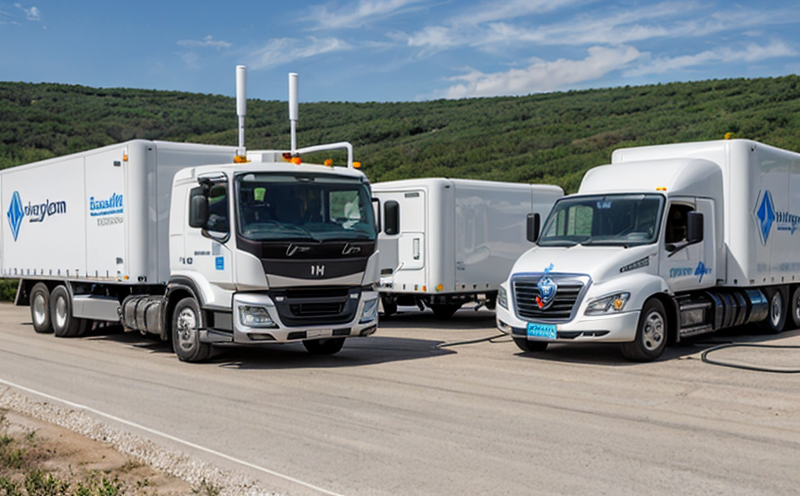IEC 62282-8-102 Electrolyzer Durability Testing
The International Electrotechnical Commission (IEC) standard IEC 62282-8-102 provides a framework for testing the durability of hydrogen electrolyzers. This standard ensures that manufacturers and users have reliable data on the performance, safety, and longevity of their systems under real-world operating conditions.
Electrolyzer durability is crucial in the hydrogen fuel cell sector as it directly impacts the reliability and economic viability of hydrogen-based energy solutions. Over time, electrolyzers undergo various stresses such as temperature fluctuations, pressure variations, and chemical exposure to water and gases like hydrogen and oxygen. These factors can lead to degradation or failure if not properly tested.
According to IEC 62282-8-102, durability testing involves subjecting the electrolyzer to a series of operational cycles that simulate real-world usage patterns. This includes varying load conditions, temperature cycling, and exposure to different humidity levels. The goal is to assess how well the electrolyzer withstands these stresses over time without compromising its efficiency or safety.
One critical aspect of this testing is the ability to replicate actual operating environments accurately. For instance, the test chamber can simulate extreme temperatures ranging from -40°C to 85°C and pressures up to 10 bar. Additionally, the system must be capable of generating various gas mixtures containing hydrogen, oxygen, and water vapor in precise concentrations.
The testing process typically begins with initial calibration using a known reference standard. Once calibrated, the electrolyzer undergoes multiple cycles of operation and rest, each lasting several hours. During these cycles, data on voltage output, current consumption, efficiency, and any signs of degradation are meticulously recorded.
Another important element is the monitoring of safety parameters such as over-temperature protection mechanisms and pressure relief valves. These features ensure that even if the system experiences unexpected conditions during testing, it will not fail catastrophically. The data collected throughout these cycles provide insights into the long-term performance and reliability of the electrolyzer.
After completing the specified number of cycles, the final assessment involves comparing pre-test and post-test results. Any significant deviations from expected values would indicate potential issues with durability or design flaws that need addressing before commercial deployment.
This comprehensive approach ensures that only high-quality, durable electrolyzers reach marketplaces, thereby fostering trust among consumers and stakeholders in hydrogen fuel technology.
Why It Matters
The importance of IEC 62282-8-102 cannot be overstated as it plays a pivotal role in ensuring the robustness and reliability of hydrogen electrolyzers. In an era where sustainability is paramount, reliable energy sources like hydrogen are gaining significant attention. However, for these systems to achieve widespread adoption, they must demonstrate consistent performance across diverse operating conditions.
By adhering to this standard, manufacturers can validate their products against stringent international benchmarks, enhancing credibility and market acceptance. Moreover, compliance with IEC 62282-8-102 helps streamline regulatory processes by meeting pre-established criteria recognized globally.
- Increased Confidence: Demonstrates adherence to rigorous testing protocols, thereby boosting customer trust in the product's reliability.
- Enhanced Reputation: Aligns with industry leaders who prioritize quality and safety standards, positioning your brand favorably within competitive markets.
The standard also fosters innovation by encouraging continuous improvement through iterative design changes based on test results. This collaborative effort contributes significantly to advancing the overall state of hydrogen electrolyzer technology.
Benefits
- Enhanced Reliability: Ensures consistent performance across various operating conditions, reducing operational risks.
- Increased Credibility: Aligns with industry standards recognized worldwide, enhancing brand reputation and customer confidence.
- Improved Safety: Identifies potential safety hazards early in the development process, preventing catastrophic failures.
- Faster Market Entry: Simplifies compliance requirements by meeting pre-established international benchmarks.
The benefits extend beyond mere regulatory adherence; they contribute to the broader goal of advancing sustainable hydrogen fuel technology. By prioritizing durability through rigorous testing, we pave the way for more efficient and reliable energy solutions that can play a crucial role in addressing global environmental challenges.
Eurolab Advantages
EuroLab stands out as a leading provider of IEC 62282-8-102 electrolyzer durability testing services. With state-of-the-art facilities and experienced professionals, we offer unparalleled expertise in this field.
- Advanced Equipment: Equipped with cutting-edge technology that allows precise control over test parameters.
- Detailed Reporting: Provides comprehensive reports detailing every aspect of the testing process, facilitating informed decision-making.
- Client Collaboration: Engages closely with clients throughout the project to ensure all specific needs are met.
- Global Recognition: Our compliance meets international standards and is trusted by major players in the industry.
Choose EuroLab for your electrolyzer durability testing needs, where precision meets reliability.





